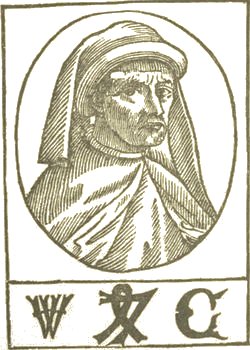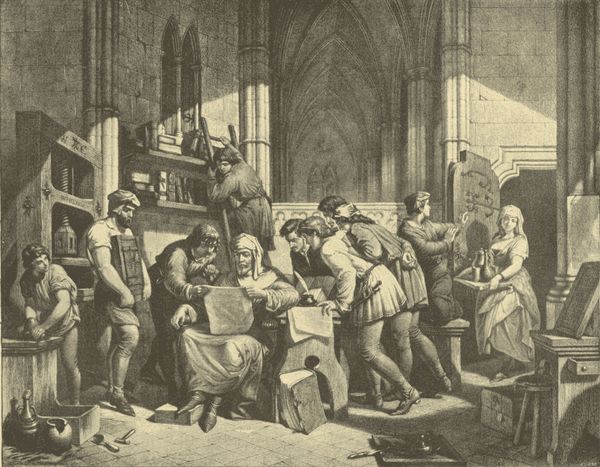 William Caxton, born around 1422 in Kent, England, is celebrated as the first English printer and a pivotal figure in the history of English literature. His contributions to the spread of printed books in England had a profound impact on literacy, learning, and culture during the late 15th century.
William Caxton, born around 1422 in Kent, England, is celebrated as the first English printer and a pivotal figure in the history of English literature. His contributions to the spread of printed books in England had a profound impact on literacy, learning, and culture during the late 15th century.
Caxton began his career as a merchant and diplomat, spending many years in the Low Countries, where he was exposed to the emerging technology of movable type printing. Inspired by the potential of this revolutionary invention, Caxton learned the trade and established his own printing press in Bruges, Belgium. In 1473, he produced his first printed book, Recuyell of the Historyes of Troye, a translation of a French romance, which he had undertaken himself.
Recognizing the opportunity to introduce printing to England, Caxton returned to his homeland in 1476 and set up the first printing press in Westminster. His first major work printed in England was The Dictes or Sayings of the Philosophers in 1477. Over the next two decades, Caxton printed more than 100 books, covering a wide range of subjects, including literature, history, religion, and practical manuals.
Among Caxton's most notable publications were Geoffrey Chaucer's The Canterbury Tales, Sir Thomas Malory's Le Morte d'Arthur, and John Gower's Confessio Amantis. By printing these works, Caxton played a crucial role in preserving and disseminating English literary heritage. He also translated many texts from French and Latin, making them accessible to a broader English-speaking audience.
 Caxton's efforts greatly contributed to standardizing the English language, as his printed texts helped to solidify spelling and grammar conventions. His work laid the foundations for the rise of English literature and the spread of knowledge, making books more affordable and widely available.
Caxton's efforts greatly contributed to standardizing the English language, as his printed texts helped to solidify spelling and grammar conventions. His work laid the foundations for the rise of English literature and the spread of knowledge, making books more affordable and widely available.
William Caxton died in 1491, leaving behind a legacy that transformed English society. His pioneering work in printing marked the beginning of a new era in communication, education, and cultural development, ensuring that his impact would be felt for centuries to come.
|
 William Caxton, born around 1422 in Kent, England, is celebrated as the first English printer and a pivotal figure in the history of English literature. His contributions to the spread of printed books in England had a profound impact on literacy, learning, and culture during the late 15th century.
William Caxton, born around 1422 in Kent, England, is celebrated as the first English printer and a pivotal figure in the history of English literature. His contributions to the spread of printed books in England had a profound impact on literacy, learning, and culture during the late 15th century.
 Caxton's efforts greatly contributed to standardizing the English language, as his printed texts helped to solidify spelling and grammar conventions. His work laid the foundations for the rise of English literature and the spread of knowledge, making books more affordable and widely available.
Caxton's efforts greatly contributed to standardizing the English language, as his printed texts helped to solidify spelling and grammar conventions. His work laid the foundations for the rise of English literature and the spread of knowledge, making books more affordable and widely available.






